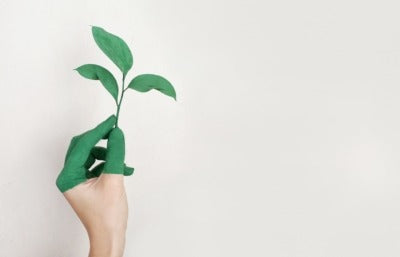
CasaGIN and Lenzing:
for sustainable production
At CasaGIN we believe in ethical and sustainable production, which is why we take great care in carefully choosing the partners with whom we collaborate . In fact, the production of our garments is based on innovative and eco-friendly fabrics, i.e. materials that do not damage the environment and do not pose risks to the wearer's skin. One of the raw materials we use most is Tencel . This is a registered trademark that certifies the production of Lyocell and Modal textile fibres: two artificial fabrics of natural origin, extracted from Eucalyptus and Beech plants respectively. Lyocell and Modal, labeled Tencel, are ecological fibers derived from the regeneration of wood cellulose . But it's not just the materials that make the difference. We looked for and found a company capable of cultivating and producing in an environmentally and health-safe way , which could certify the fabrics as entirely eco-friendly, created with 100% renewable and biodegradable raw materials. This company is Austrian and is called Lenzing: a group that manages a circular business model based on renewable raw materials to produce fibers that return to nature after use.

The company, which operates globally, has always been attentive to the issue of sustainability . That's why, with the aim of improving the state of the global textile industry, it recently chose to expand production and build the world's largest wood processing plant in Brazil. The company will build the plant in Minas Gerais state, near Sao Paulo, in a collaboration with Duratex, the largest wood panel manufacturer in the Southern Hemisphere. The plant will produce up to 500,000 tonnes of pulp per year for Lenzing's textiles . All production will take place through certified forests, i.e. from responsible sources .
Lenzing says the plantations will meet the Lenzing Group's “guidelines and high standards for the supply of wood and pulp”. The plans were first announced in June, but Lenzing has now confirmed that he is pushing ahead with the project to increase production, secure supplies and reduce costs . Stefan Doboczky, president of the Lenzing Group, said that the plant in question will be the largest and most competitive of its kind. “Wood-based cellulosic fibers make an important contribution to improving sustainability in the textile sector,” he said. “With this investment, we will become more competitive, act more independently and subsequently strengthen our position in the market. The trust and support of the main shareholders of Lenzing and Duratex were of great importance for this key project.”
In planning the new production plant, particular importance was given to sustainability aspects . The collaboration will ensure FSC certified plantations covering an area of over 44,000 hectares to provide the necessary biomass. The plant will operate among the most productive and energy efficient in the world and will feed 40% of the excess bioelectricity generated on site into the public grid as “green energy” . With this project, Lenzing sets a milestone in his strategy for carbon neutrality. The non-profit organization Canopy, which works to protect ancient and endangered forests around the world, said it is confident about the project: the new Lenzing plant will only use wood from sustainable sources and will not be touched ancient or endangered forests .
But what does the term sustainable really mean? Sustainable timber refers to timber that has been harvested responsibly. This requires that when a tree is cut down for use, another is planted to replace it . Forests are in fact one of the most precious natural resources in the world. More than a third of the earth's population depends on what our forests can provide, from firewood to textiles and biomass fuels. Fortunately, wood is a totally renewable resource, so it's vital that we remain mindful of our impact on the environment and do everything we can to ensure that forests will be here for many generations to come . At CasaGIN we firmly believe in this principle and we strive every day to ensure that everything we produce comes from natural and eco-sustainable fabrics so as to make our garments incredibly soft, breathable and delicate on the skin, but also sustainable for the environment. This is why we chose eucalyptus, beech wood, organic cotton and regenerated plastics: projects created to promote a low environmental impact and the use of renewable resources.


